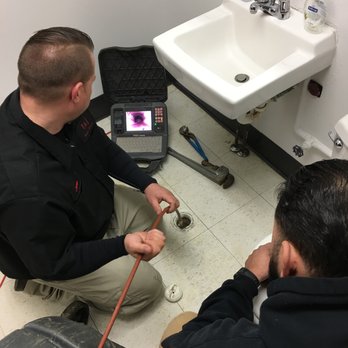
Cash flow issues are unique for special contractors. They are often near the end of the line when it comes to payments, and they are often on the front lines when it comes to completing projects on time. These obstacles can affect their productivity as well as profitability. They can be overcome by education and planning.
License requirements
Specialty contractors need to go through several steps to obtain a license. To get a license, specialty contractors must first demonstrate their expertise in the chosen field. This could mean passing specific trade exams, or providing financial statements. Before they can obtain a license, some states require that they demonstrate their knowledge in the field.
License applications must also include a license or registration fee. Contractors can pay the fee electronically to the Division of Labor. Based on the length of the license, the fee will be prorated. It is necessary to renew the license each three years.

Appendix
The SEMP is a description of the engineering scope and technical content for the SE. It should be prepared early in the Formulation Phase. As the project progresses, it should be updated as required. Table J-1 provides guidance as to what should be included in the SEMP for each life cycle phase. A SEMP should also include information about significant changes to SE processes. In addition, the SEMP should describe contract technical effort, such as source selection and monitoring of performance, transferring and integrating externally produced products to NASA.
Responsibilities
Specialization is the role of a specialty contractor. These contractors usually work on the jobsite but may also do smaller jobs in their own workshops. These tasks may include plumbing, lighting and concrete pouring. Regardless of the specialty of the contractor, they must possess excellent business acumen and results-oriented skills.
A specialty contractor often works as a subcontractor for the general contractor. Although a general contract can handle most types of projects, specialty contractors are skilled in specific areas. Their experience and skills are invaluable on the job site.
Prices
Specialty contractors perform a wide range of services, including construction and maintenance of commercial buildings. This industry has more than 460,000 businesses in the US and generates more than $875 million annually. Demand is driven by new construction activity, corporate profits, and local government budgets. Accurate project bids are crucial for specialty contractors' profitability. They must accurately estimate labor and material prices, and recover costs through change orders. Large and small specialty contractors can offer their services for a wide market.

A specialty trade contractor typically does the majority of the work at site. However, they may also have shops that they prefabricate parts and perform other work. These shops prepare the site for new construction.
FAQ
Where can I find more information about building permits?
You can contact your local government authority, such as the NSW Local Government Association, or your local realty agent. They should be able to advise you about what steps you need to take to obtain permission to build.
What is a Service Agreement template?
A service agreement template is a document which contains all details about a specific service agreement. To create a standard agreement, a service agreement template can be used.
Service agreements are crucial because they set the boundaries between two parties.
They allow both sides to better understand one another's needs and expectations. They also ensure that both parties know exactly what they are getting into before signing off on the deal.
Is There Any Way That I Can Prepare For Negotiation Beforehand?
Yes!
There are many ways that you can prepare yourself for negotiation.
One way is to make the terms and condition of the agreement.
Statistics
- (3) The contracting officer may provide for a contract price adjustment based solely on a percentage rate determined by the contracting officer using a published economic indicator incorporated into the solicitation and resulting contract. (acquisition.gov)
- (1) Ascertain the extent to that offers are based on the payment of overtime and shift premiums; and (2) Negotiate contract prices or estimated costs without these premiums or obtain the requirement from other sources. (acquisition.gov)
- (v) Place or places of performance of the prime contract and first-tier subcontracts estimated at $10 million or more, if known. (acquisition.gov)
- Reasonable late fees go up to 25% per year on unpaid sums. (lawdepot.com)
- Don't take their anger personally, they are mad about the situation 99% of the time. (activatemylicense.com)
External Links
How To
What should a Service Agreement include?
Service agreements (SAs) are essential for any business relationship. It outlines what you expect from each other and how you will achieve this. The SA also defines when and where you expect the other party to deliver on its contractual obligations.
Here are the essential elements to a successful SA
-
The scope of work and services required by both parties.
-
Details about the payment terms.
-
An agreed price for your project.
-
Any additional costs such as VAT etc.
-
Whether there is anything else that needs to be discussed.
-
Who will take care of the job if it goes wrong?
-
How disputes are resolved
-
What happens if a party breaches the contract.
-
What happens in case of dispute.
-
When does the contract go into effect?
-
What happens if one of the parties fails to perform.
-
How long do you have to pay invoices?
-
Who pays for expenses such as travel?
-
Where the money comes.
-
What happens if a client changes mind about the project?
-
What happens if the supplier doesn't turn up.
-
Who has access to the site during construction?
-
What happens if the customer cancels?
-
What happens if a product is not as described?
-
What happens if a manufacturer refuses to provide parts?
-
What happens if your equipment breaks down?
-
What happens if the project is delayed?
-
What happens if work isn’t completed in the timeframe agreed upon?
-
What happens if the project is not up to standard?
-
What happens when the cost is too high?
-
What happens if you don't receive your materials on time?
-
What happens if the material arrives broken?
-
What happens to the products if they are not up-to-standard?
-
What happens if the job is canceled before completion.
-
What happens to the company if it goes bust?